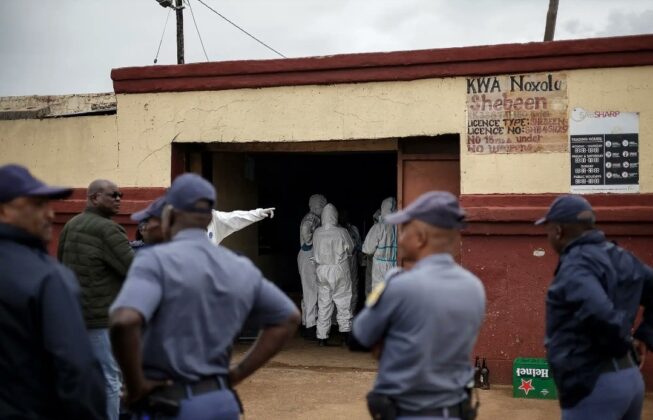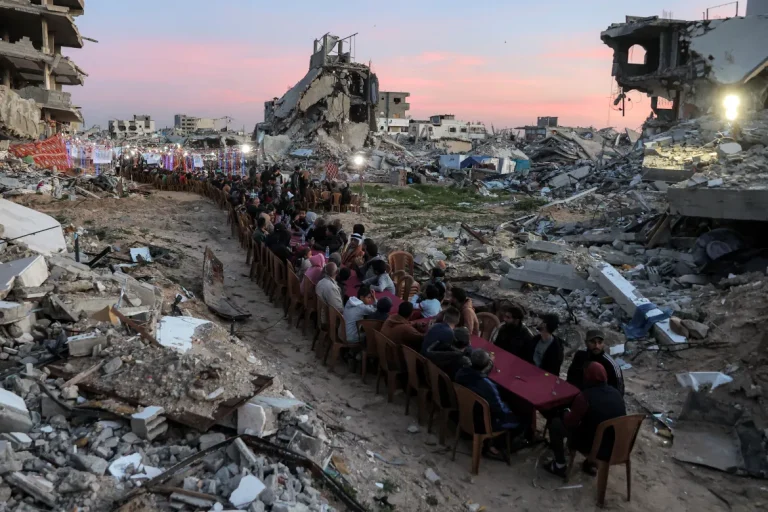
Deputy National Police Commissioner Shadrack Sibiya defends himself against interference allegations as the battle over the Political Killings Task Team intensifies. Image: George Herald.
(The Post News)– The controversy surrounding Shadrack Sibiya, the suspended Deputy National Police Commissioner for Crime Detection, is once again making headlines as he fights back against accusations that he interfered with the work of the Political Killings Task Team in KwaZulu-Natal. The matter has sparked intense public debate, drawn in senior police leadership, and reached the North Gauteng High Court, where judgment has been reserved in the Sibiya vs. Masemola case.
Sibiya was suspended in July following corruption accusations against him. Initially, he welcomed the decision to be “placed on leave” pending an internal investigation. However, he later filed for an urgent application with the High Court in Gauteng, disputing National Police Commissioner Fannie Masemola’s decision to place him on leave and seeking to return to his duties.
Sibiya Political Killings Task Team Dispute
Sibiya insists that he did not obstruct the operations of the Political Killings Task Team. According to him, National Police Commissioner General Fani Masemola ordered him to return 121 sensitive dockets to their original stations in KwaZulu-Natal during the gradual phasing-out process of the unit. The complication arose when KwaZulu-Natal Provincial Commissioner Lieutenant-General Nhlanhla Mkhwanazi allegedly refused to accept the dockets.
Masemola’s Position on Sibiya’s Suspension
National Police Commissioner Fani Masemola holds a different view. He argues that Sibiya was interfering with the work of the task team. He clarified that his decision to place him on suspension was not punitive but necessary to protect the credibility of ongoing investigations. Masemola further argued that Sibiya “isn’t special” and that no rights were violated by temporarily removing him from his position pending the outcome of the investigation.
Parliamentary Appearance Looms
Meanwhile, Sibiya has vowed to strengthen his case when he appears before the Parliamentary Ad Hoc Committee next week. “The data committee has been summoned for the 10th, so that is when I’m expected to be there to make my presentation,” he confirmed.
This appearance is expected to shed more light on the ongoing internal South African Police Service (SAPS) dispute and may have far-reaching implications for the future of the Task Team and political killings investigations in KwaZulu-Natal.
Judgment Reserved in Sibiya vs. Masemola
The North Gauteng High Court has reserved judgment in the Sibiya vs. Masemola matter, leaving the public waiting anxiously for clarity on whether Sibiya’s suspension will be upheld or overturned. Legal experts suggest that this case could set an important precedent for how senior police officers are handled when allegations of interference in politically sensitive investigations are made.
KwaZulu-Natal, on the other hand, has long been a hotspot for political violence. The Madlanga Commission and the Political Killings Task Team were established to curb these crimes, with more than 121 dockets currently under investigation. According to South African Police Service reports, significant progress has been made, but the public remains deeply concerned about political assassinations targeting local councillors and community leaders.
Meanwhile, this ongoing dispute between the two SAPS officials exposes deeper tensions within SAPS leadership and highlights the challenges of balancing accountability with operational independence. If Sibiya is vindicated, it could prompt renewed calls for reform in how sensitive investigations are managed. On the other hand, if Masemola’s decision is upheld, it could reinforce the authority of the National Commissioner to act decisively when senior officials are accused of interfering with high-profile investigations.
The Sibiya Political Killings Task Team saga is far from over. With Parliament set to hear from Sibiya next week and the North Gauteng High Court poised to deliver a ruling, the coming weeks could shape the trajectory of political killings investigations in KwaZulu-Natal and the credibility of SAPS leadership.
South Africans will be watching closely, as this case goes beyond individual reputations—it strikes at the heart of the country’s efforts to end political violence and restore trust in law enforcement.



